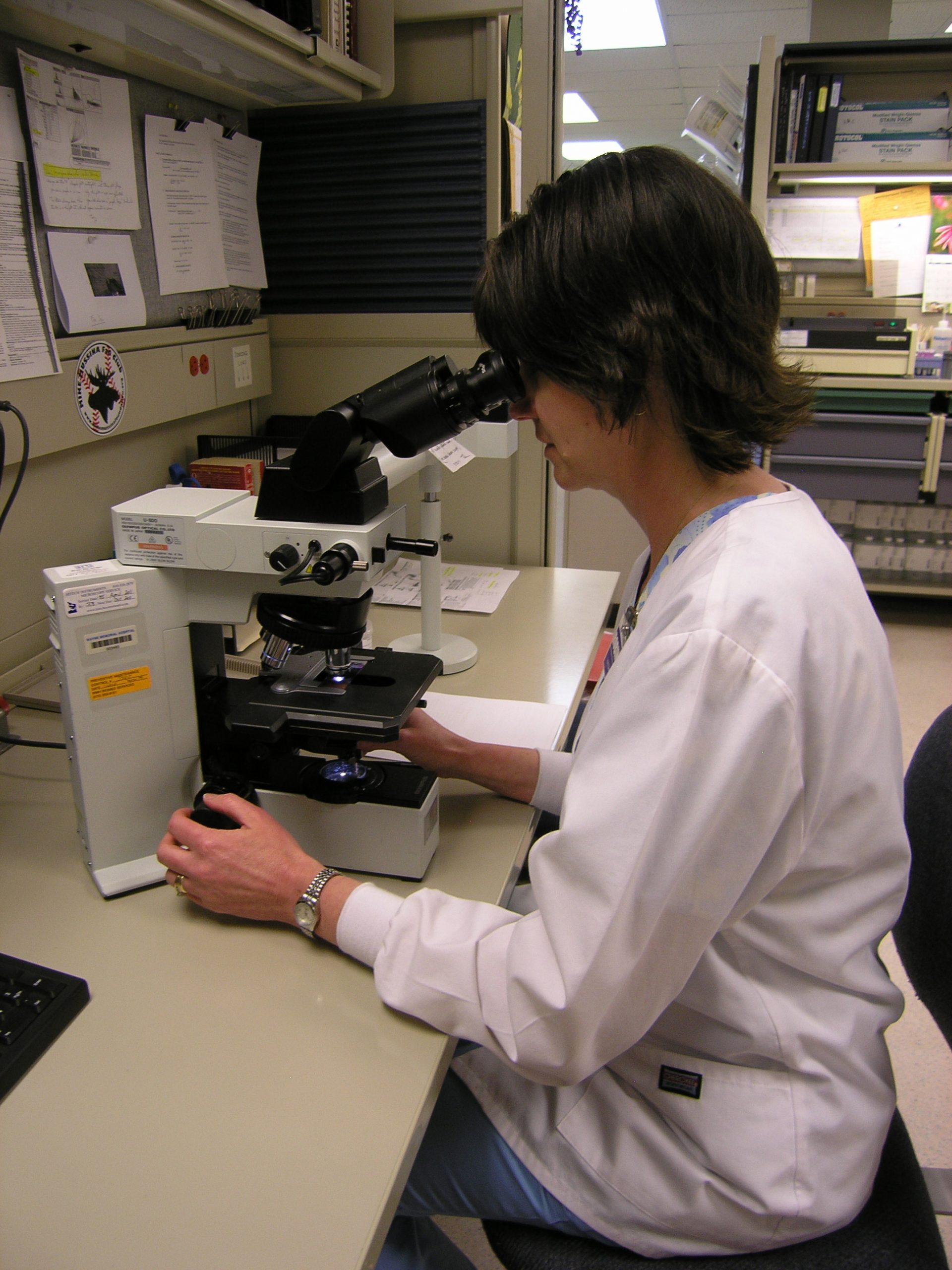If you need proof to show your employer that you are cleared of COVID-19 to go back to work, “The COVID diagnostic test is the one you need,” says Sibyl Rickard, MD, director Anatomic and Clinical Laboratories at Wayne Memorial Hospital, “not the antibody test.”
Dr. Rickard explains that the serology or antibody tests available right now offer up too many “false positives” and too much cross-reactivity with other common corona viruses. Antibody tests check a person’s blood for antibodies produced by an infected person to fight the disease. They show that a person has had an infection, but they may not show if the person is currently infected. That’s because the antibodies—bits of protein called immunoglobulins – go through several conversions in the body. The types of immunoglobulins that show up may indicate the host person is still in the early stages of the infection or the middle stage or over the infection.
In short, a negative test early in the disease does not exclude infection. A person could still be very much infected. Even if the test was very accurate, Dr. Rickard says it’s still hard to interpret because COVID-19 is so new.
“It can take two to three weeks for full conversion,” says Dr. Rickard, “but—and this is a big but– the relationship with immunity is still unclear.”
“There is a perceived rush to give people ‘immunity passports’ based on these antibody tests,” says Dr. Rickard, “and I do not want to give anyone a false sense of security. It is inappropriate to make individual decisions based solely on these results.”
Since COVID-19 is a virus, most experts agree that like most viruses, its antibodies probably give a person some immunity from being infected again; however so much is unknown about this disease.
So why the push for these antibody tests? “They do give us a picture of how widespread the virus might be in a community,” says Dr. Rickard, “which can help us assess every step forward—medically, socially and economically.”
Dr. Rickard also points out that all serology testing at this time, including point of care testing, must be performed in CLIA-certified labs approved to run moderate to high complexity testing. The community should be suspicious of any testing performed outside of a laboratory setting.
Meanwhile, she reiterates, the best test remains the COVID-19 molecular test, also known as the PCR (polymerase chain reaction) test. This diagnostic test finds the virus that causes COVID-19 in samples taken from your respiratory system, such as swabs of the inside of your nose. Some tests are point-of-care tests, meaning results may be available at the testing site in less than an hour. Other tests must be sent to a laboratory to analyze, a process that may take a few days.
Wayne Memorial Hospital uses its in-house lab, as well as a commercial lab, Lab Corps, and the state health laboratory.
Unfortunately, the COVID diagnostic test is still not available to everyone. A person must show serious symptoms or a history of exposure or travel to an outbreak area. A prescription is required to get the test.
“Every day we get in more testing materials,” says Dr. Rickard, “so hopefully we will be able to expand testing soon.”
For more information about testing, visit www.cdc.gov/coronavirus/2019-ncov/symptoms-testing.
Photo: Sibyl Rickard, MD, Director Anatomic and Clinical Laboratories at Wayne Memorial Hospital.


